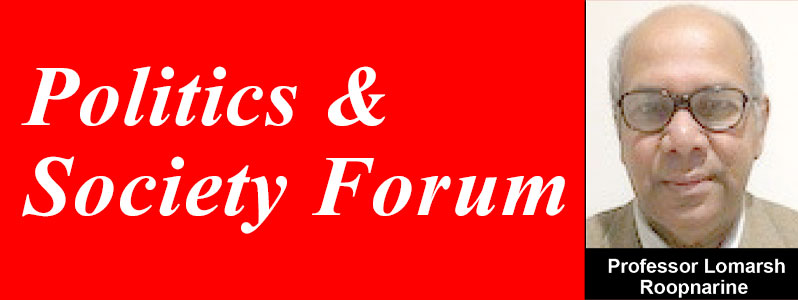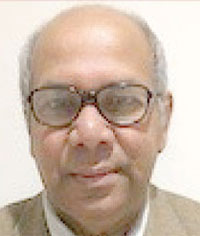THERE was a time in Guyana when social and political commentators, whether in print or voice, were few and far between. For three decades following Guyana’s independence, the then PNC dictatorial regime monitored and controlled what Guyanese should listen to and read in the media. However, during this same period, a few private and imported news outlets, such as the Mirror, Catholic Standard, Stabroek News and Caribbean Contact, existed amid serious censorship and constraints. They were regulated, relegated, and reduced to the status of weekly newspapers.
My generation in the 1970s and early 1980s, therefore, was restricted, if not deprived, from the benefits arising from the Fourth Estate. I remember, clearly, not having the opportunity to watch Sir Clive Lloyd score that magnificent hundred at Lords in the first Cricket World Cup in 1975. It is not the same, listening to that marvelous display over the radio. I understand that Forbes Burnham was watching the game on a big-screen television. To the unaware, especially to the younger generation, Burnham had banned television in Guyana, an asinine policy to control the flow of information in Guyana to diminish any challenge to his iron grip in Guyana.
The consequence of controlling the Fourth Estate was that the flow of information was not only what the government of the day desired, but also commentaries, for example, were not based on truths and accuracies, and subsequently bereft of objectively. By 1992, a slew of commentators emerged in tandem with the urgency to restore and practise press democracy. The emergence of new commentators did not mean responsible commentary. Of course, not all commentators fell into the rogue side of commentary, and indeed, some were a pleasure to listen to their thoughts and read their columns. This aspect of commentary has been difficult to maintain in Guyana, which has gotten out of control over the past decade, especially since the APNU+AFC coalition was voted out of power about two years ago.
I understand that we live in a fast-paced world driven by technology, and we have benefited from this ongoing development, for example, on social media such as Facebook, WhatsApp, Twitter, and the list goes on. We have become mentally richer from these developments, and, admittedly, they are here to stay. I receive information from my village and other places that, without social media, would have taken months. I am particularly impressed with how some individuals and events have emerged from obscurity to ubiquity.
Commentaries concerning politics in Guyana over social media, however, have produced a dark side, spewing misinformation, untruths, and propaganda targeting some individuals and events that do not see eye-to-eye with them. Unfortunately, these individuals are on a misguided mission, believing they are producing news. There is little concern for repercussion on themselves or to their listeners and communities. These individuals are not concerned if their reporting would hurt their integrity or incite and eschew violence. They, of course, support their behaviour in the name of free speech, citing various constitutional rights. That may be the case, but with freedom of speech, there is a need to draw the line between inflammatory and hate speech and constructive criticism. If not, extremism will take precedence over responsibility. Indeed, if you listen to some Guyanese commentators now based in New York over social media, you will recognise immediately the looseness of content that have thinned down the line between the democratisation of the media space and their desperate attempts of aspersion.
How can one explain the relationship between those so-called commentators and their listeners over social media, since one enables the other? There are two reasons why the above happens: (a) Listeners are drawn to commentators because they agree and represent their views of the world they live in, and (b) listeners are looking for some sort of variation of viewpoints. However, most listeners gravitate to the first reason. Richard Wohi and Donald Horton in 1956 described this relationship as parasociological interaction. It is a psychological relationship whereby listeners/followers believe they have an intimate relationship with commentators or media personalities even though they might not have any meaningful contact or relationship with them. From this relationship, the listeners over time become captive audiences, ignoring critical thinking as to what they are receiving from their commentators.
So, what ought to be done? There is no quick fix to this loose cannon menace to society. We certainly do not want to cage irritant commentators, even if they are far too gone for reform and unwilling to regulate their views. There is hope. The European Union has embarked on a social media policy that strikes a balance between innovation and regulation to organise, stimulate, encourage, and promote as well as to shape future social media as safe and trustworthy through a host of initiatives including media literacy. Guyana needs to pay attention to this earth-shaking initiative (lomarsh.roopnarine@jsums.edu).
Too many loose cannons on social media
SHARE THIS ARTICLE :
Facebook
Twitter
WhatsApp













